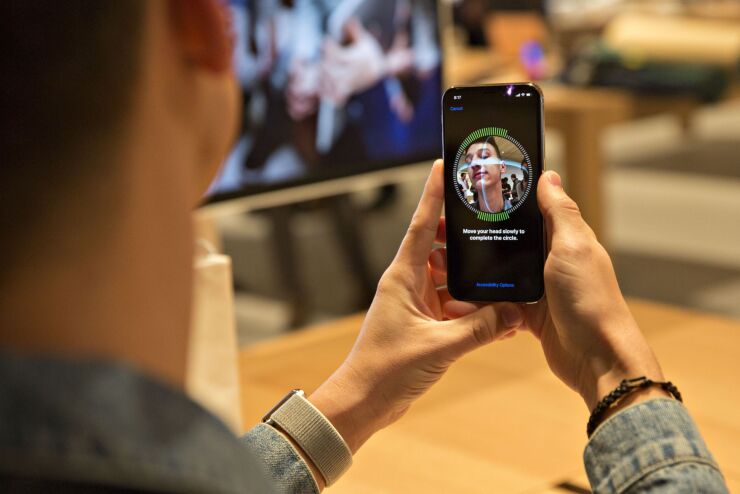Imagine never having to type a password to access your digital workstation again.
That’s the future BNY Mellon Pershing envisions. Advisors can now access the custodian’s NetX360 desktop using fingerprint and facial-recognition capabilities on an Apple device, with support for Android devices planned in 2021.
Beyond convenience, biometric authentication can help advisors be more secure, says Michelle Feinstein, Pershing’s director of technology and client engagement. By using fingerprints and facial-recognition technology instead of traditional passwords, advisors can stop using words and phrases that can be easily guessed, written down in unsecure locations (like Post-it notes on the side of a screen) or stolen in phishing schemes.
“This moves [advisors] away from having to remember all the time what their password is and type it into their desktop,” Feinstein says.
Advisors will still need a secure, written password to access the desktop the first time and enable biometric login. They will then get a link sent to their mobile device to authenticate either their fingerprint or face. After that, advisors only need to use the mobile login to access their desktop, though they will have to change the core password every 60 days for security, Feinstein says.

While Pershing is starting with logins, the firm has plans to eventually use biometric authorization for additional processes, such as getting client authentication for asset movement.
“I do think that biometric's popularity is going to continue to grow,” Feinstein says, especially as it becomes more ubiquitous in consumer technology.
As many as 66% of clients say they prefer biometric authentication to the use of traditional passwords, according to research firm Celent. Wealth management firms are looking to invest more in external software and services, and biometric authentication is a top short-term priority.
Pershing already supports fingerprint and facial-recognition logins on its client portal, but hadn’t previously brought the technologyover to advisors. Providing this type of functionality is especially important in a post-COVID-19 world where both advisors and clients are increasingly remote, Feinstein says.
Fidelity Institutional also supports biometric authorization for clients to access the Wealthscape Investor portal. A spokesperson says it is on the company’s technology roadmap to bring this over to advisors as well.
In 2019, Cetera Financial Group
“You’re starting to see different major players think about how they can move towards a password-less experience,” Feinstein says. “This is one step forward towards that. In the future, I think we can get there.”






